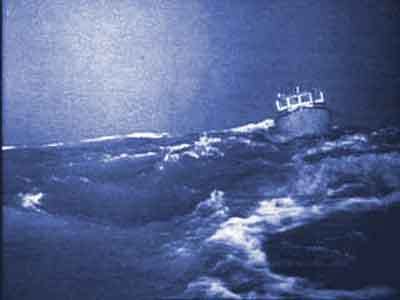
I did, and it was a fantastic way to see what police departments really do (the only better way might be to enroll in the real police academy and become an honest-to-goodness cop).
Many local law enforcement jurisdictions hold their own Citizen Academies (or some version of one--make a few calls, you'll be surprised). Mine was put on by the Herndon (VA) Police Department , where everyone involved was absolutely great--friendly, informative, generous. We met every Wednesday night for 12 weeks, and the sessions encompassed a wide range of police activities.
Undercover narc cops spoke to us about the seamy underbelly of the drug world, regaling us with some amazing stories and showing us what different drugs looked like, up close and personal. Gang specialists told us about dealing with different gangs and how to determine gang affiliation by inspecting tattoos. We watched a K9 unit demonstrate "take-down" techniques, and we hit the streets to work the RADAR and LIDAR guns (sorry Mrs. Peterson, but I clocked you going 48 mph in a 35 mph zone).
We went to the evidence lab and learned how to expose fingerprints 
Another highlight was our visit to the County Detention Center (aka, the jail). Talk about an eye-popping experience! We toured the whole thing--intake, processing, fingerprinting, breathalyzers, the holding cells, regular cells (pods, I think they were called), as well as the "special" cells. Fascinating, and mighty depressing.
While all those experiences were terrific, the topper was my ride-along with a police officer.
Come with me back to that Saturday night on the mean streets of Herndon...
We'd been cruising for about two hours or so, checking out the normal trouble spots, and we'd gotten the usual calls. Excessive noise at a sketchy apartment complex, some possible gang activity near the 7-Eleven, a D-and-D (that's drunk and disorderly, for all you, uh, rookies) at a local bar. Just your typical shift. Then the radio crackled to life again (notice how police radios always "crackle to life.").
There was a report of people--several people--running through the Community Center's parking lot with rifles. "Hold on," the officer beside me said. "This could get hairy." She flipped on the siren and we went roaring through town, cars parting to let us through. Screeching into the Community Center parking lot, we pulled up alongside a couple other cruisers, both empty, one with a door still flung open. Someone had left in a hurry.
The officer barked at me, "Stay here. Don't get out of the car."
I forced a nod, mouth too dry to talk. Of course, she didn't have to worry. I had no intention of following her into the night with a bunch of armed goons on the loose.
She grabbed her shotgun from the lockdown and raced off, leaving me all alone.
My heart raced. What if the guys with guns doubled back and found me, by myself, a sitting duck in a patrol car? Would I become the unfortunate reason future ride-alongs had to be eliminated? I sank in my seat and peered out over the dashboard, hoping for reinforcements. Nope, just me and the empty police cars. I'd realized it before, but it hit home a lot harder in that moment. We don't pay law enforcement personnel nearly enough.
Luckily, the situation had a non-violent resolution. It turned out that the people running through the parking lot were teenagers wielding air rifles. No one got hurt. But, man, how easily could something have gone terribly, irrevocably wrong? In the dark, those air rifles were indistinguishable from real rifles. Some poor teenager's head easily could have been blown off.
I'll say it again; I heartily recommend attending a Citizen's Police Academy. Just make sure to wear two pairs of underwear on ride-along night.
Alan





























